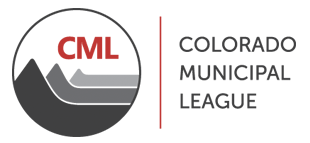In This Section
Amicus Curiae: The League's Appellate Role
Advocacy in state and federal courts on behalf of Colorado municipalities as an amicus curiae (“friend of the court”) is one of the most important legal services CML provides to its members. Many cases reaching Colorado (or federal) appellate courts have the potential to impact Colorado municipalities. Municipal members participating in court cases can request that CML file briefs on their behalf. The CML Amicus Committee reviews the requests and determines if there is a substantial likelihood that important law will be made affecting Colorado municipalities, and then makes a recommendation to the CML Executive Board.
The League limits its appearances before the appellate courts to cases of particular legal significance to a broad range of Colorado municipalities. The League’s disposition to be selective about the appeals in which it participates reflects several considerations, one of the most important being we have always assumed that, if CML began to appear routinely, we would diminish the significance of our amicus participation. By applying the criteria set forth below, we strive to limit CML involvement to those cases in which the League’s messaging will be most impactful and most likely to influence the disposition of the case.
The following is an overview of the steps for requesting participation, the process of review, and the considerations that affect the Amicus Committee’s decision of participation:
A request for CML amicus participation must be by letter, directed to CML General Counsel Robert Sheesley. The letter and attachments should be submitted electronically to rsheesley@cml.org.
- The letter must be from the governing body, or from the attorney for the governing body, acting on behalf of the jurisdiction or entity requesting the the League’s participation as amicus curiae.
- The letter must describe:
- The nature of the case and the issues presented,
- Why this appeal is of particular importance to Colorado municipalities statewide,
- The procedural status of the appeal, including the briefing schedule, if known,
- The name, title, and contact information for the person or persons representing the municipality in appeal.
- The letter should be accompanied by whatever attachments the applicant believes the League’s Amicus Committee would find useful in making its decision. A copy of the court order or decision appealed from and (if applicable) the petition for certiorari
- CML legal staff and the League’s Amicus Committee will review the amicus request and attached materials. Staff and the Committee may solicit advice from attorneys with expertise in the particular area or areas of law addressed in the appeal, as necessary or useful to assist in their analysis. Applicants are encouraged to make their case for League involvement in their letters.
- Staff and the Amicus Committee will discuss the request. Staff will make a recommendation to the Committee based upon the submitted letter and materials as a starting point for committee discussion.
- CML staff or the Committee may suggest that a request be resubmitted at another time. For example, it might suggested to a municipality that its request for League participation be resubmitted after the Court of Appeals has reached its decision, or after the Supreme Court has ruled on a pending cert petition, thus more precisely defining the issues on appeal.
- The recommendation from the Amicus Committee will be submitted to the CML Executive Board.
- A member of the Committee whose firm or client is requesting CML amicus participation may not vote on the Committee’s recommendation to the board. The board is not bound by the Committee’s recommendation. The board will authorize League participation as amicus curiae in any appeal in which the League participates.
Those involved in appellate litigation have time to avoid last minute requests for amicus participation to the League. Consequently, the CML Executive Board ordinarily has an opportunity to consider a request before a filing deadline arrives. Nonetheless, late requests do occur. Staff may proceed with preparation of a brief (or cooperate with others in the preparation of a brief) should the briefing schedule so require, prior to board consideration of a request, upon a recommendation to do so from the Amicus Committee, and with the consent of the CML Executive Director.
- How broad an impact does the lower court decision have, or would an adverse appellate decision have on Colorado municipalities? Would a broad spectrum of municipalities or only a very few be affected? Would municipalities be able to sidestep the problem caused by this decision by making a simple change in some procedure or practice? Does a narrow set of facts limit municipal exposure in this case? As a practical matter, is this decision likely to have a lasting impact on Colorado municipalities?
- How serious would an adverse decision be on certain of our members, even if the impact is not felt across our membership?
- Are municipalities united or divided on the issues being litigated? (Occasionally, municipalities will be parties on both sides of the same case; however, CML has never before sided with one municipality against another in such a case.)
- Does this case involve the fundamental division of power between municipalities and the state or federal government (as in preemption or home rule authority cases)?
- Does this case involve some critical aspect of municipal authority or liability, such as control of land use, right-of-way authority, personnel management, taxation and revenue, or governmental immunity?
- Does this case present an opportunity to accomplish in the judicial branch a result that we would be unlikely to achieve in the legislative branch?
- Do the parties and amicus lining up on the other side make League participation advisable?
- Was the request made with sufficient time for the CML Amicus Committee to review the materials, meet to discuss the request, and make a recommendation to the CML Executive Board?
Download the complete memo, League Amicus Participation: Process and Considerations (revised: May 2019).
